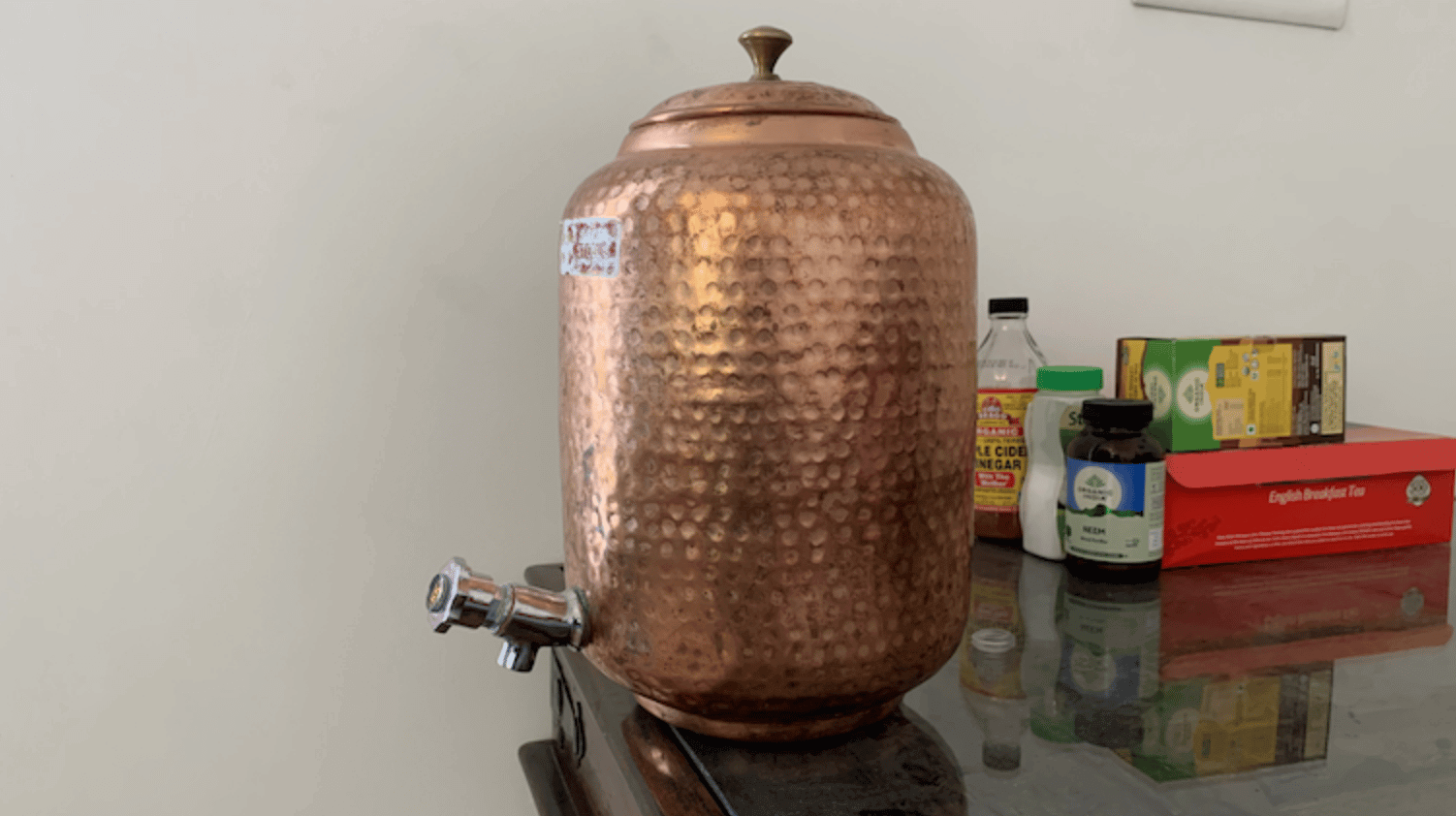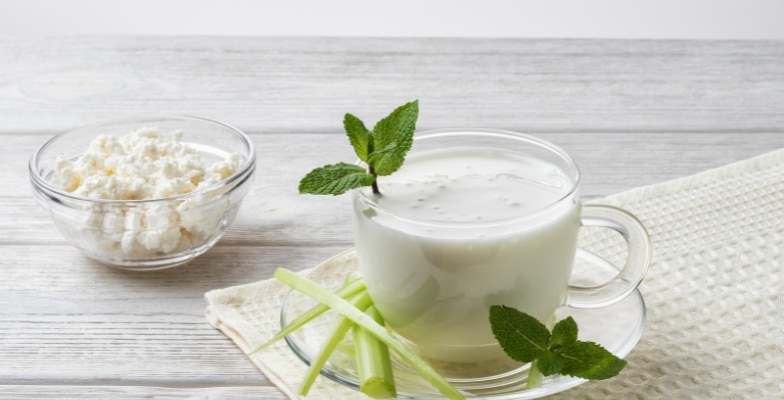Why Water Is Important For Health? Optimal Water Intake Per Day
- Is Water A Compound Or An Element?
- Why Water Is Important For Health
- 3 Steps To High-Quality Drinking Water
- Optimal Intake Of Water Per Day
- Final Thoughts

Water is essential for life. Approximately 65% of the adult body is water. This percentage is more in infants and less in the elderly. Water is indeed an essential nutrient, and every organ and system in the human body counts on water to function optimally.
Let’s learn more about water in this article.
Is Water A Compound Or An Element?
A compound is formed when two or more atoms combine through chemicals bond with each other. Water’s chemical composition is H2O. This means that two atoms of oxygen are chemically bonded with one atom of hydrogen.
Water is everywhere on planet earth. Just like our bodies are ~70% water, planet earth is also 70% water. Oceans consists of ~97% of all the water found on earth.
Most people confuse water with an element. Before the discovery of atoms and molecules, water was indeed called an element. But scientifically speaking, an element is a substance with only one type of atom but water consists of two types i.e. oxygen and hydrogen. Therefore water is not an element.
Why Water Is Important For Health
Water’s importance is established because most of us can survive without food for several weeks, but when it comes to water, the time is limited to only a few days!
It is a vital nutrient that is required in optimal quantity on a daily basis. Before I discuss how much water one should consume daily, let’s understand the key role of the human body.
Water And Brain
According to BrainMD.Com 1https://brainmd.com/blog/6-amazing-health-benefits-of-drinking-water/
Your brain is 80% water, your muscles (including your heart) are 75% water, your blood is 83% water, your lungs are 90% water, your skin is 64% water, and even your bones are 30% water.
Optimal water intake helps with maintaining memory function and improving concentration and cognition. Mild dehydration, which is 1-3% bodyweight loss of water, can affect brain function. Cognitive functions such as concentration, alertness, and short-term memory are altered during mild dehydration.
Water And Weight Loss
Whenever I put my clients on a calorie-deficit diet, they complain of increased hunger. I tell them it is not hunger. It’s just cravings. To curb their cravings, I suggest zero-calorie beverages, including water, as the first thing they should reach for.
Other zero-calorie beverages include black coffee, apple cider vinegar, lemon juice, and green tea. It’s important to note that these beverages are 99% water which is a very effective strategy to curb cravings and act as appetite suppressants.
A long-term randomized controlled trial done on 173 premenopausal overweight women concluded that increased water intake resulted in significant loss of body weight and fat over 12 months. 2https://pubmed.ncbi.nlm.nih.gov/18787524/
A study in the Journal of Clinical Endocrinal Metabolism concluded that drinking 500ml of water increased metabolic rate by 30%. The increase occurred within 10 minutes and reached a maximum after 30-40 min. 3https://pubmed.ncbi.nlm.nih.gov/14671205/ Various other studies support the same results that water intake results in an increased metabolic rate. 4https://pubmed.ncbi.nlm.nih.gov/24179891/, 5https://pubmed.ncbi.nlm.nih.gov/25097411/
Water And Skin Health
As we have learned, the skin is 64% water, and increasing your water intake will positively affect your skin health. Optimal intake of water helps in getting rid of skin toxins resulting in radiant skin. Enough water intake also reduces water retention.
Water retention occurs due to less water intake as the body tries to retain more water to prevent dehydration. However, when you drink enough water, there is no reason for the body to retain water! This reduces the ‘puffy’ look and makes you look toned.
It Helps Lowers The Risk Of Chronic Diseases
A study published in the New England, Journal examined 47,909 participants over ten years. It concluded that a high fluid intake is associated with a decreased risk of bladder cancer in men. 6https://pubmed.ncbi.nlm.nih.gov/10228189/ A similar correlation was identified in another study for colorectal cancer. 7https://pubmed.ncbi.nlm.nih.gov/8827352/
Another study analyzes the association between water intake and coronary heart disease in 12,017 women and 8,280 men. 8https://pubmed.ncbi.nlm.nih.gov/11978586/ In this six-year follow-up, they found out that men and women who drank more than five glasses or more water per day reduced their coronary heart disease risk by 54% and 41%, respectively.
Regulates Body Temperature
Water helps regulates body temperature. For example, when you exercise, you start to sweat. Sweat production is linked to the intensity of your workouts and the environmental condition.
During these times, it’s important to increase water intake to avoid dehydration and electrolyte imbalances. Therefore, adequate rehydration during exercise has been of considerable interest and particular interest to athletes as a hydrated body.
3 Steps To High-Quality Drinking Water
1) RO System
I am sure most of you already have a branded RO system installed in your house. Reverse Osmosis (RO) removes contaminants from unfiltered water that comes into your home through the main water supply system.
There is no need for a RO system in most developed countries, as tap water is safe to drink. However, in countries like India, a RO system is almost necessary as tap water has many contaminants that can be removed with the reverse osmosis system.
There are many stages in how a reverse osmosis system works: unfiltered water passes through a sediment filter, a carbon filter, and a semi-permeable membrane. You can easily find the complete process explained here. 9https://www.freshwatersystems.com/blogs/blog/what-is-reverse-osmosis
2) Store The Water In A Copper Vessel

Ayurveda recommends the use of copper for storing water. This is because copper is an essential trace mineral and vital to the body’s health from fetal development to old age. In addition, it is known to have antimicrobial, antibacterial, anti-carcinogenic, and antioxidant properties.
The body uses copper to carry out many vital functions, including making energy and maintaining the nervous and immune systems. It also needs copper for brain development and iron absorption.
According to this study, the copper surface destroys most bacteria, fungi, and other germs that can cause ill health. 10https://www.ncbi.nlm.nih.gov/pmc/articles/PMC3312355/ More studies also support that copper kills all pathogens and makes water edible for drinking. 11https://cdn.shopify.com/s/files/1/1419/0850/files/Copper_Water_Vessel_Study_2.pdf?11079965153100211770, 12https://cdn.shopify.com/s/files/1/1419/0850/files/Copper_Water_Vessel_Study_3.pdf?11079965153100211770
3) Store The Drinking Water For Many Hours And Ideally Expose It To The Sun
Once the filtered water is filled up in a glass bottle, store around 5 liters in the copper pot. I do this every alternate evening. Please note it’s important to store the filtered water for at least 8 hours in a copper vessel to gain the benefits discussed above.
On an empty stomach, I drink around 750ml of copper-infused first thing in the morning. However, I strongly recommend that you do so. This is because your body is dehydrated overnight, and rehydrating first thing in the morning with copper-infused water is the best thing you can do to kickstart your day!
Once the Sun is up, I keep the copper vessel out in direct sunlight to energize the water. Although there is no scientific evidence supporting that the Sun’s rays have a positive effect on drinking water, I like to believe that the Sun rays further help kill any pathogens left and infuse the water with vital energy.
A Few More Suggestions
There is no risk of toxicity from drinking water stored in a copper vessel, even for several days. According to WHO, 2mg/liter is the upper limit for the consumption of copper in water. 13https://www.who.int/water_sanitation_health/dwq/nutwaterrequir.pdf
Based on the studies linked above, copper levels in the water were around 0.177mg/L, significantly lower than the upper limit. However, I suggest re-filling your copper vessel every alternate day to keep things fresh! Another suggestion is to clean your copper vessel periodically.
Optimal Intake Of Water Per Day
Now that we have learned the best ways to drink high-quality, energized water for good health, let’s understand how much water you should drink daily for optimal cognitive, mental, and overall health.
Just like one’s protein intake is intrinsically linked with their activity levels, the same way your water intake will vary based on where you live and how active you are. If you live in a country where it’s hot and humid most of the time, your water intake will be higher because you will lose more water in sweat.
Similarly, if you indulge in moderate-to-high-intensity workouts, your water intake will be more than people who lead a sedentary lifestyle.
In 1945, the National Academy of Sciences advised 1 milliliter of water for every calorie you eat. For example, if you eat a 2,000-calorie diet, you should drink 2 liters of water daily. When you average the intake touted by most health authorities, it comes to roughly 2 liters per day.
This is roughly eight glasses (8 ounces) of water. In-fact 8×8 is a popular water unofficial recommendation that most people abide by and has been quite popular in the press for decades. 14http://www.dining.ucla.edu/housing_site/dining/SNAC_pdf/DrinkToYourHealth.pdf, 15https://www.thehindu.com/sci-tech/health/water-water-everywhere/article18409340.ece
However, this recommendation does not take into account one’s gender, age, activity levels, the kind of climate they live in, and, most importantly, how much water they are ingesting through foods and beverages.
The reality is that most people do consume approximately 20% of their water via food. Most fruits and vegetables are 75-99% water. Meats and poultry are 50-65% water. Many low-calorie beverages like black coffee, tea, green tea, coconut water, lemon juice, and vegetable juices are all 99% water and add significantly to your water intake.
Summary
There is no official figure from any health authority on optimal water intake. However, they recommend that the water intake varies for each individual and can vary depending on their lifestyle and where they live.
The best way to ensure optimal water intake is to let your body be your guide. For starters, ensure that your urine color is always light yellow in color or colorless. A dark-yellow or orange color indicates dehydration.
Also, please note that the moment you start to feel thirsty, you are already dehydrated. So it’s a good idea to drink water throughout the day. To ensure this, it’s important to keep a ~1-liter bottle of water on your work desk or in your office where it is visible.
Final Thoughts
Water is an essential nutrient to the human body, without which we cannot survive for more than a few days. Every cell in your body depends on water for nourishment, elimination, insulation, and regulating body temperature.
It’s part of almost all vital functions and chemical processes that happen in our bodies. Therefore, optimizing your water intake is a critical habit that one should strive to build.
Water quality also matters. Besides using a branded RO system, it does help infuse your drinking water in a copper vessel, ideally overnight, for added benefits, as discussed in this article.
Before I end this article, an important note about hyponatremia, which is a life-threatening situation. It happens mostly in athletes who drink too much water to prevent dehydration before and during long and intense exercise sessions.
When you drink too much water, your kidneys can’t get rid of the excess water, and the sodium content in your blood gets diluted and may prove fatal. However, hyponatremia is extremely rare, and you don’t need to worry about it! I just wanted to point out that too much of a good thing can also be bad!
What do you think about this article? Have any questions? Let me know in the comments below!

Skill-Based Education.
Global Recognition.
Powerful Community Building
Secure a certificate of completion in as little as a day by graduating from one of our free courses.
Get Access to Our Free Courses. No Credit Card Required.

Fabulous Body Membership
Your All-Access Pass to A Fabulous Body & A Rewarding Career
25+ Certificate Courses & Programs, All Included
15 Day Free Trial, 100% Money-Back Guarantee
About Akash Sehrawat
Akash is a creator of 25+ programs and certificate courses in which more than 200,000 students have enrolled both on Udemy and Fabulous Body's native platform. Akash is also an author of three books that can be found on Amazon. His answers on Quora have gathered more than 12 million views in less than a year.










